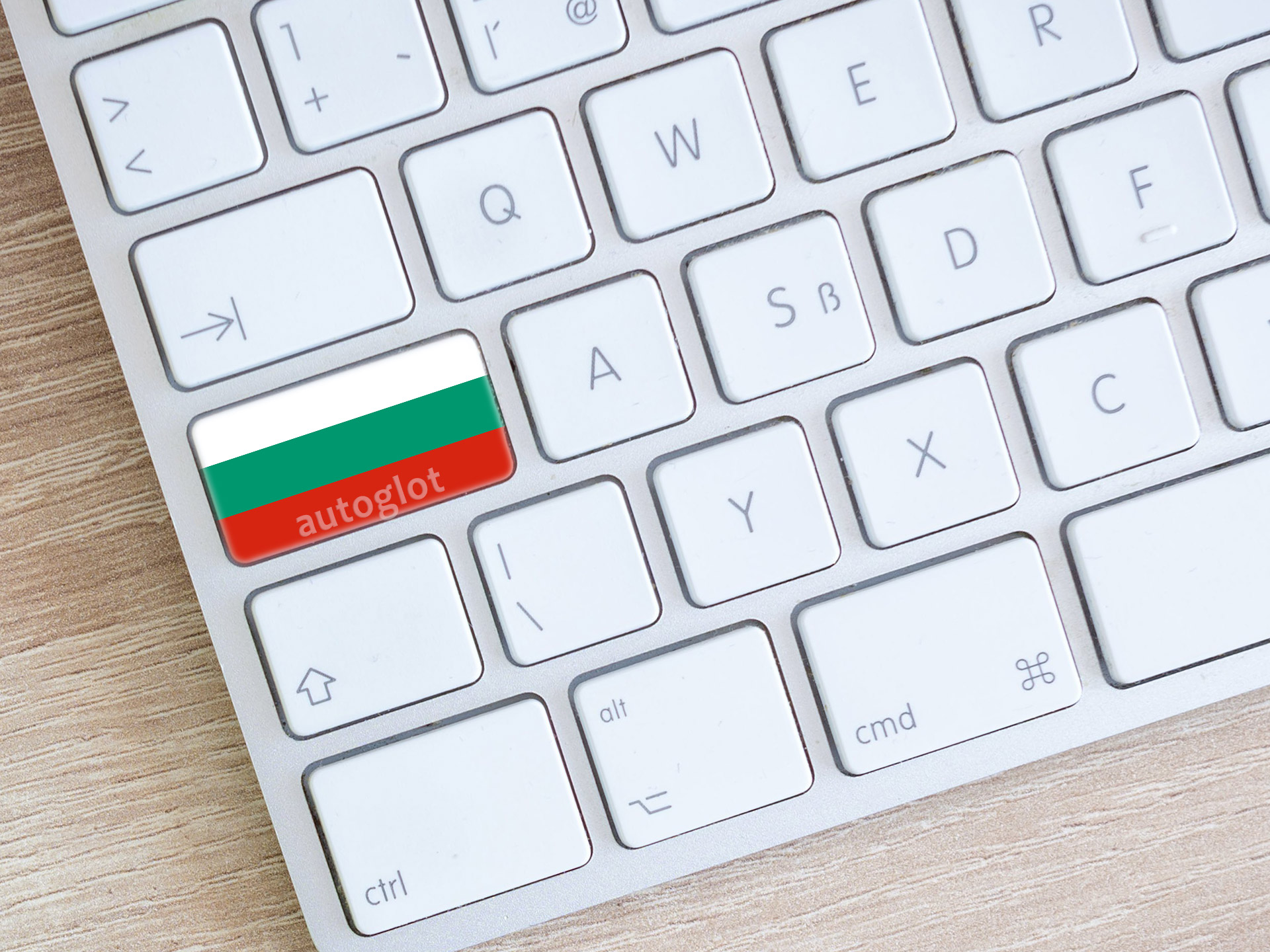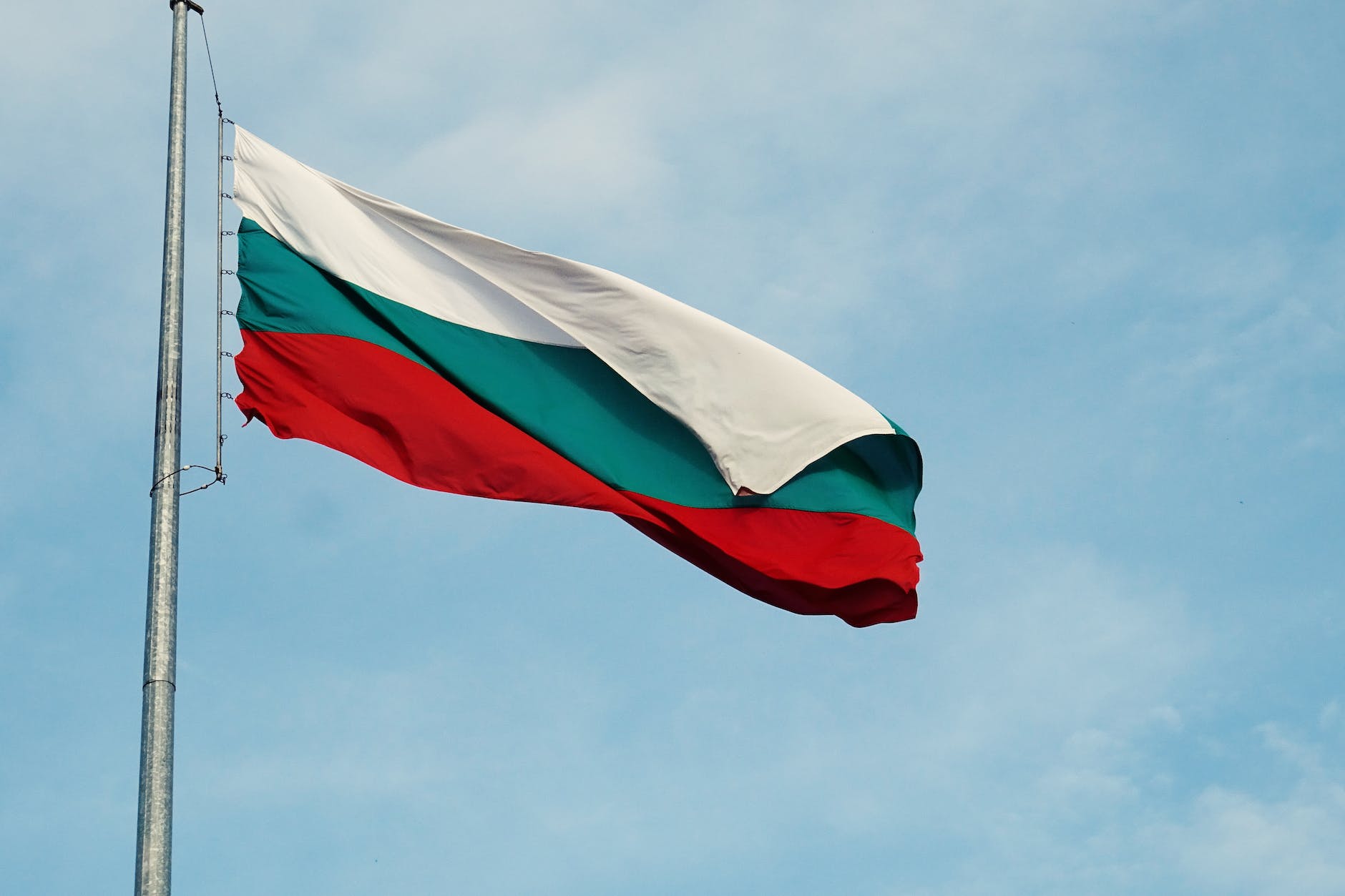
Multilingual websites have become a game-changer in the digital era, opening up new avenues for global interaction and expanding the reach of online platforms. In this linguistic tapestry, the importance of translation cannot be overstated.
When you expand your business to the worldwide audience, it is crucial to translate your website to many languages, including Bulgarian.
Introduction to Bulgarian Language
Bulgarian, a South Slavic language, weaves a rich linguistic narrative, reflecting the cultural heritage and history of its speakers. Its origins trace back to the medieval period, evolving over the centuries into a distinct language with a unique identity. Despite its intricate linguistic evolution, Bulgarian boasts a simplicity that makes it approachable for language enthusiasts.
The structure of Bulgarian is characterized by its Cyrillic alphabet, adding a visual flair to the language. Its vocabulary and grammar, while influenced by neighboring languages, contribute to the language’s charm. Learning Bulgarian is a journey into a linguistic realm that rewards both the curious beginner and the seasoned polyglot.
With a sizable population of speakers, Bulgarian resonates not only within its borders but also in communities worldwide. Beyond Bulgaria, you’ll find Bulgarian speakers in countries where the language has secured official status. The Bulgarian linguistic footprint extends its influence, creating connections and fostering a sense of shared identity among its speakers.
The digital landscape reflects the widespread use of Bulgarian on the Internet. As online interactions transcend geographical boundaries, having a Bulgarian version of your website becomes paramount. Embracing linguistic diversity online ensures that your content resonates with Bulgarian-speaking audiences, establishing a connection that goes beyond mere words.
Bulgarian Language: Unveiling the Linguistic Marvel
Embarking on a linguistic journey, we delve into the heart of the Bulgarian language, an eloquent marvel that encapsulates a rich cultural history. With its roots firmly planted in the South Slavic linguistic family, Bulgarian has blossomed into a language that not only communicates but also reflects the soul of its speakers.
A Glimpse into Bulgarian Language
The history of the Bulgarian language is akin to a captivating narrative, with its roots dating back to the medieval period. Shaped by influences from Old Church Slavonic and various regional dialects, Bulgarian emerged as a distinct language, carrying the echoes of its dynamic linguistic evolution. The Cyrillic alphabet, employed for written communication, adds a unique visual identity to Bulgarian, setting it apart in the linguistic landscape.

Simplicity in Complexity: Learning and Understanding Bulgarian
One notable aspect of Bulgarian is its accessibility. While languages often present intricate challenges, Bulgarian stands out for its straightforwardness. Aspiring learners find solace in the language’s relatively simple grammar and consistent rules. The phonetic nature of Bulgarian aids in pronunciation, making it an inviting language for those eager to explore a new linguistic terrain.
Structure, Vocabulary, and Grammar
The Cyrillic script, an integral part of Bulgarian’s linguistic makeup, lends a distinct visual charm to the language. Its structure, with a phonetic correlation between letters and sounds, facilitates learning and reinforces clarity in communication. Vocabulary, influenced by historical and cultural factors, weaves a tapestry of expression that reflects the essence of Bulgarian identity.
Navigating the grammar of Bulgarian unveils a set of rules that, while nuanced, contribute to the language’s elegance. Verb conjugations, noun declensions, and a lack of definite articles characterize Bulgarian grammar, offering language enthusiasts a unique and rewarding linguistic experience.
Bulgarian: A Language of Expression and Identity
In essence, the Bulgarian language goes beyond a mere means of communication; it is a vessel of expression and identity. As we explore the linguistic landscape of Bulgarian, we gain insight into a language that encapsulates the spirit of a vibrant and culturally rich community.
Bulgarian-Speaking People
Bulgarian, with its eloquent charm, connects a diverse community of speakers both within its borders and across the globe. Let’s unravel the intricacies of the Bulgarian-speaking population, exploring the countries where the language thrives, its official status, and the vibrant linguistic tapestry it weaves.

A Sizeable Population: The Resonance of Bulgarian Voices
The Bulgarian-speaking community boasts a substantial population, primarily concentrated in Bulgaria, where it serves as the official language. Beyond the borders of this Balkan nation, significant Bulgarian-speaking communities thrive in regions such as neighboring countries and diaspora communities. The resonance of Bulgarian voices extends far and wide, creating a global network of linguistic unity.
Official Language Status: Beyond Bulgaria’s Borders
While Bulgarian holds the status of an official language in its homeland, its influence transcends national boundaries. Certain regions and countries recognize Bulgarian as a minority language, emphasizing its cultural significance and the importance of preserving linguistic diversity. This official acknowledgment further solidifies the role of Bulgarian in shaping the cultural fabric of diverse communities.
Bulgarian-Speaking Countries: Beyond Borders and Boundaries
Apart from Bulgaria, where Bulgarian takes center stage, there are pockets of linguistic communities in countries such as Greece, Turkey, and Ukraine. Historical ties, migrations, and cultural exchanges have played a role in dispersing Bulgarian speakers, contributing to the language’s presence in unexpected corners of the world. The shared linguistic heritage creates a sense of connection, bridging geographical gaps and fostering a shared identity.
Global Footprint: The Cultural Exchange of Bulgarian Language
The Bulgarian language has left an indelible mark on the global stage, creating connections that surpass linguistic boundaries. In diaspora communities and among expatriates, the Bulgarian language serves as a cultural lifeline, preserving traditions and fostering a sense of belonging. The global footprint of Bulgarian is a testament to the enduring nature of language as a carrier of heritage and identity.
The language is more than a mode of communication—it is a unifying force that binds communities, transcending borders and fostering a shared cultural identity.
Bulgarian on the Internet: Bridging Virtual Boundaries
The digital realm has transformed the way we communicate, breaking down geographical barriers and fostering connections across the globe. In this virtual landscape, the presence of the Bulgarian language has steadily grown, carving out a space for itself. Understanding the significance of this online expansion is key to unlocking the true potential of reaching Bulgarian-speaking audiences.

The Widespread Influence of Bulgarian Online
Bulgarian’s presence on the Internet extends far beyond the borders of Bulgaria. Websites, social media platforms, and online forums resonate with the vibrancy of the language, creating a digital space where Bulgarian speakers connect, share, and engage. This widespread influence is a testament to the language’s relevance and the thriving online community it has cultivated.
Why Having a Bulgarian Version Matters
In the vast sea of digital content, having a Bulgarian version of your website is not merely an option – it’s a strategic necessity. The digital world is a mosaic of diverse languages and cultures, and catering to the linguistic preferences of your audience enhances user experience. A Bulgarian version of your website ensures that your content is not just understood but embraced by the Bulgarian-speaking community.
Cultural Relevance and Connection
Beyond practicality, offering content in Bulgarian demonstrates a commitment to cultural relevance. It’s a gesture that goes beyond language translation; it signifies an acknowledgment of the unique identity and cultural nuances that shape the Bulgarian-speaking audience. In this digital age, where personalization is paramount, catering to the cultural context strengthens the bond between your brand and the audience.
Building Trust and Credibility
A Bulgarian version of your website contributes to building trust and credibility among Bulgarian-speaking users. It showcases an understanding of their preferences and a willingness to engage on a linguistic level. Trust is the foundation of any successful online interaction, and linguistic alignment is a powerful tool in establishing and maintaining that trust.
The Bottom Line: A Connected Digital Landscape
In conclusion, recognizing the widespread influence of Bulgarian on the Internet is not just about embracing a language; it’s about participating in a connected digital landscape. Having a Bulgarian version of your website is a strategic move that enhances your online presence, fosters cultural connection, and builds trust among Bulgarian-speaking audiences.
Next come some practical solutions for seamlessly translating your WordPress site into Bulgarian, ensuring your online presence speaks the language of your diverse audience.
Source
How to Translate a WordPress Site to Bulgarian?
For WordPress site owners looking to tap into the Bulgarian-speaking market, translating content into Bulgarian is a strategic step. Here are some major methods of translating WordPress sites to Bulgarian with the Autoglot WordPress translation plugin as a standout tool for automating this transformative process.

Major Methods of WordPress Translation
- Manual Translation: Traditionally, website owners would manually translate each piece of content into the desired language. While effective, this method can be time-consuming and labor-intensive, especially for websites with extensive content.
- Professional Translation Services: Hiring professional translation services ensures accuracy and cultural relevance. However, this approach may incur higher costs, making it less feasible for smaller websites or businesses with budget constraints.
- Machine Translation: Machine translation tools, such as Google Translate, offer a quick but sometimes imperfect solution. While they provide a basic translation, nuances and cultural context may be lost in the automated process.
Autoglot WordPress Translation Plugin: A Game-Changer
Enter the Autoglot WordPress translation plugin – a dynamic solution for website owners seeking a seamless and efficient way to translate their content into Bulgarian. This plugin harnesses the power of machine translation while addressing common pitfalls through advanced algorithms, ensuring a more accurate and contextually relevant output.
Why Autoglot Stands Out
- Automatic Translation: Autoglot streamlines the translation process by automatically translating your WordPress site’s content into Bulgarian. This eliminates the need for manual input and speeds up the overall translation timeline.
- Contextual Understanding: Autoglot’s sophisticated algorithms go beyond literal translation, taking into account the context of the content. This results in translations that not only convey the message accurately but also capture the nuances of the original text.
- User-Friendly Interface: The plugin’s user-friendly interface makes it accessible to website owners with varying levels of technical expertise. Installing and activating Autoglot is a straightforward process, making it an ideal choice for those looking for efficiency without compromising usability.
For all Website Owners
In a digital landscape where time is of the essence, Autoglot empowers WordPress site owners to efficiently reach Bulgarian-speaking audiences. The automatic translation feature minimizes the burden of manual efforts, allowing website owners to focus on creating engaging content while ensuring their message is effectively communicated to a broader linguistic community.
Step-by-Step Guide to Translating a WordPress Site to Bulgarian with Autoglot
Now that we’ve explored the landscape of translating WordPress sites into Bulgarian, let’s delve into a practical, step-by-step guide on how to seamlessly achieve this using the Autoglot WordPress translation plugin. Whether you’re a seasoned website owner or just starting, this guide will walk you through the process, ensuring your content speaks the language of your Bulgarian audience effortlessly.
Step 1: Install and Activate Autoglot WordPress Translation Plugin
- Begin by navigating to your WordPress dashboard.
- In the “Plugins” section, click on “Add New.”
- Search for “Autoglot” and click “Install Now.”
- Once installed, activate the plugin to kickstart the translation journey.
You may also download Autoglot directly from the official WordPress plugins repository.
Source
Step 2: Register on Autoglot Control Panel
- Upon activation, you’ll need to register on the Autoglot Control Panel.
- This step involves creating an account to access the translation services.
- Follow the registration prompts, providing the necessary information to set up your account securely.
Autoglot Control Panel lets you control your translation expenses, track usage and order new translation packages.
Source
Step 3: Plugin Configuration
- Return to your WordPress dashboard and access the Autoglot plugin settings.
- Here, you’ll link your WordPress site to your Autoglot account via API key.
- Input the credentials generated during the registration process, establishing a seamless connection between your website and Autoglot’s translation services.
Step 4: Choose Bulgarian Among Languages
- With the plugin configured, select Bulgarian as the target language for translation.
- Autoglot supports a wide array of languages, and choosing Bulgarian ensures that your content is accurately translated to cater to the Bulgarian-speaking audience.
Step 5: Check the Results of Automatic Translation
- Once you’ve chosen Bulgarian as the target language, the Autoglot plugin works its magic.
- Your WordPress site’s content will be automatically translated into Bulgarian.
- Take some time to review the translations, ensuring they align with your intended message and convey the nuances of your original content.
Step 6: Fine-Tune as Needed
- While Autoglot strives for accuracy, it’s always a good practice to review the translations for any specific terminology or context unique to your content.
- The plugin allows for manual adjustments, giving you the flexibility to fine-tune the translations according to your preferences.
Step 7: Monitor and Update
- Translation is an ongoing process. Keep an eye on your content, especially if you regularly update your website.
- Autoglot offers tools to monitor changes and update translations accordingly, ensuring your site stays linguistically relevant over time.
By following these simple steps, you’ve successfully translated your WordPress site into Bulgarian using the Autoglot plugin. Embrace the convenience of automation while retaining control over the nuances of your content, offering a seamless and engaging experience for your Bulgarian-speaking audience.
Challenges and Benefits of Translating WordPress Sites to Bulgarian: A Comprehensive Overview
As we navigate the realm of website translation, particularly when targeting the Bulgarian-speaking audience, it’s essential to acknowledge both the challenges and benefits inherent in this transformative process. Let’s explore the intricacies of bridging linguistic gaps and the rewarding outcomes that arise from translating WordPress sites into Bulgarian.
Challenges of Translation: Navigating Linguistic Nuances
While the prospect of reaching a broader audience is enticing, translation comes with its set of challenges. Linguistic nuances, cultural context, and idiomatic expressions require careful consideration to ensure that the translated content resonates authentically with Bulgarian speakers. Striking a balance between accuracy and maintaining the original tone poses a constant challenge in the translation landscape.
Maintaining Contextual Relevance: A Delicate Balance
The context in which content is presented plays a pivotal role in effective communication. Translating a WordPress site involves not only converting words but also preserving the contextual relevance of the message. Autoglot, with its advanced algorithms, addresses this challenge by understanding and incorporating context, minimizing the risk of misinterpretation.
Benefits of Translating to Bulgarian: Opening New Avenues
Despite the challenges, the benefits of translating WordPress sites into Bulgarian are profound:
- Wider Audience Reach: By offering content in Bulgarian, you tap into a significant linguistic demographic, expanding your reach and engaging with a broader audience.
- Enhanced User Experience: A Bulgarian version of your website ensures a more personalized and user-friendly experience for Bulgarian-speaking visitors, fostering a sense of inclusivity.
- Cultural Connection: Translating content goes beyond language; it demonstrates a commitment to cultural understanding. Establishing this connection builds trust and strengthens your brand’s relationship with the Bulgarian audience.
- SEO Benefits: Translating your website into Bulgarian can improve its visibility on search engines for relevant keywords, contributing to enhanced SEO performance.
The Autoglot Advantage: Streamlining the Translation Journey
In overcoming the challenges and reaping the benefits of translating WordPress sites into Bulgarian, Autoglot stands out as a valuable ally. The plugin’s automatic translation feature expedites the process, minimizing manual efforts while maintaining a high level of accuracy. The user-friendly interface empowers website owners to navigate the translation landscape seamlessly, ensuring their message transcends linguistic boundaries.
Call-to-Action: Embrace the Power of Autoglot
In conclusion, the journey of translating WordPress sites into Bulgarian is a dynamic process that requires a thoughtful approach. Autoglot, with its innovative features and user-friendly design, emerges as a robust solution to streamline this journey. Whether you’re a business owner, blogger, or content creator, embracing the power of Autoglot opens doors to a vibrant and engaged Bulgarian-speaking audience. Take the leap, break linguistic barriers, and let your digital presence speak the language of inclusivity and connection.



